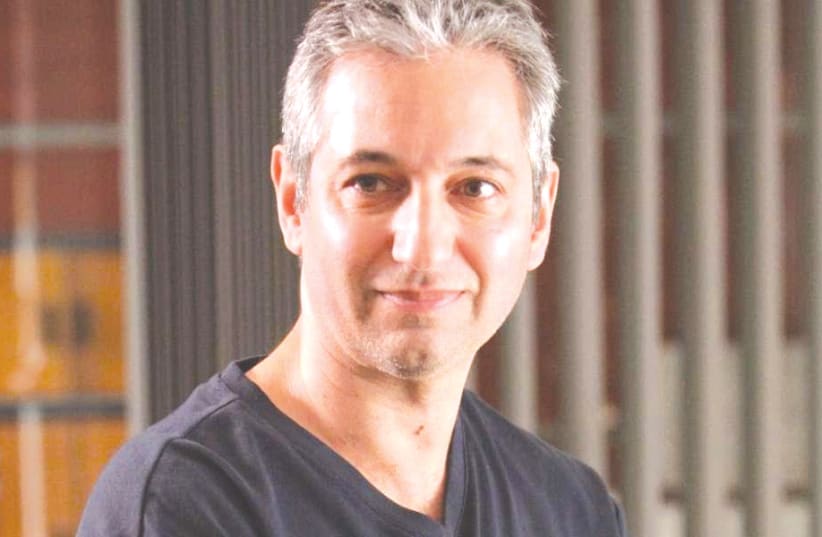Shore, best known as the producer/writer/showrunner of House and The Good Doctor, took part in a Zoom event that was part of the Meet the Masters series at the Ma’aleh Film School in Jerusalem on Sunday night.
First, the host Omri Levi, a director who is also the academic director at Ma’aleh, screened a memorable episode from the first season of House, called “Three Stories,” in which House lectures a class of medical students about three patients with mysterious leg ailments and ends up revealing the truth about his own leg affliction and the pain it causes him. The episode, which won Shore an Emmy for Outstanding Writing in a Drama Series, features the line, “Everybody lies,” which House (Hugh Laurie) explains is why patients cannot be trusted to give an accurate medical history.
Asked whether he agreed with House, Shore, speaking from his home, said, “The short answer is yes.” The long answer turned out to be a bit more complicated. “I don’t believe everybody just says black when they know it’s white. People don’t tell the truth because they don’t know the truth.... They see the world the way they want to see the world.”
Shore, who is Canadian, has twin brothers, Ephraim and Raphael, who are rabbis. Ephraim works as the director of development for Aish HaTorah in New York and Raphael is a documentary filmmaker. Rather than study Talmud, Shore became a lawyer and then decided to try his luck writing in Hollywood. However, his answers to Levi’s questions showed a certain similarity to Talmudic exegesis as he explained his approach to creating complex characters and presenting medical mysteries on screen. “The show is about the search for objective truth and whether a subjective human being” can ever discover the truth.
Shore chose to make the angry, sardonic House a painkiller addict coping with chronic pain because, “With his attitude to the world, he needed to be in pain.... If you’re just a healthy, frankly white guy, just shut up.”
Asked about parallels between House and Dr. Murphy (Freddie Highmore), the hero of The Good Doctor, who is on the autism spectrum, Shore said, “There has been a lot of speculation that House had Asperger syndrome. They’re both asking the same questions from different perspectives. House is asking from a cynical, angry perspective. Dr. Murphy is asking the same questions with no judgement. He’s asking, ‘Why do we do the things we do?’ and Dr. House is asking, ‘Why the f*** do we do the things we do?’”
In spite of the character’s arrogance and irritability, Shore admitted, “I love House.” It was important to remember, he said, that House’s meanness was “never about self aggrandizement or making himself look better, it was always in the pursuit of truth.”
The character of House was inspired in some ways by Sherlock Holmes, who was famous for looking at his profession as an intellectual game rather than a quest for justice. The attitude of the traditional on-screen doctor is, “We’ve got to save this person and House’s approach is, ‘We’ve got to solve this puzzle.’”
Part of solving the puzzles on the show meant presenting medically accurate plots. To accomplish this, Shore said, the show hired a writer who was a doctor, had a nurse present on the set at all times and had three doctors who consulted on the scripts.
“We would get letters from a doctor saying this is wrong, it couldn’t have happened,” he said. He would take this to the doctors on their staff, one of whom told him once, “It happened to me.”
Making medicine entertaining was not difficult. “Luckily for me and unfortunately for mankind the ways the human body can break down are myriad.”
One participant in the event sent in a comment saying she was given an incorrect dosage of a medication and was able to figure out the correct dosage because she had seen something similar on an episode of House. “You’re welcome,” Shore joked and Levi said, “The road to paradise is open for you.”
But for Shore, the emotional and philosophical questions were the heart of the show, rather than medicine.
“When he [House] is talking about whether he thinks the experiences he had when he was [clinically] dead for a minute are real, and when he’s talking about the nature of right and wrong, that’s what fascinates me. To be honest, I need the medical mysteries, I work very hard on those medical mysteries and I’m glad people respond to them, but the medical mysteries are the thing that gets them through the door and then what I’m really selling are these other philosophical questions.”
Future events in the Meet the Masters series at Ma’aleh are available at https://www.maale.co.il/en/masters
